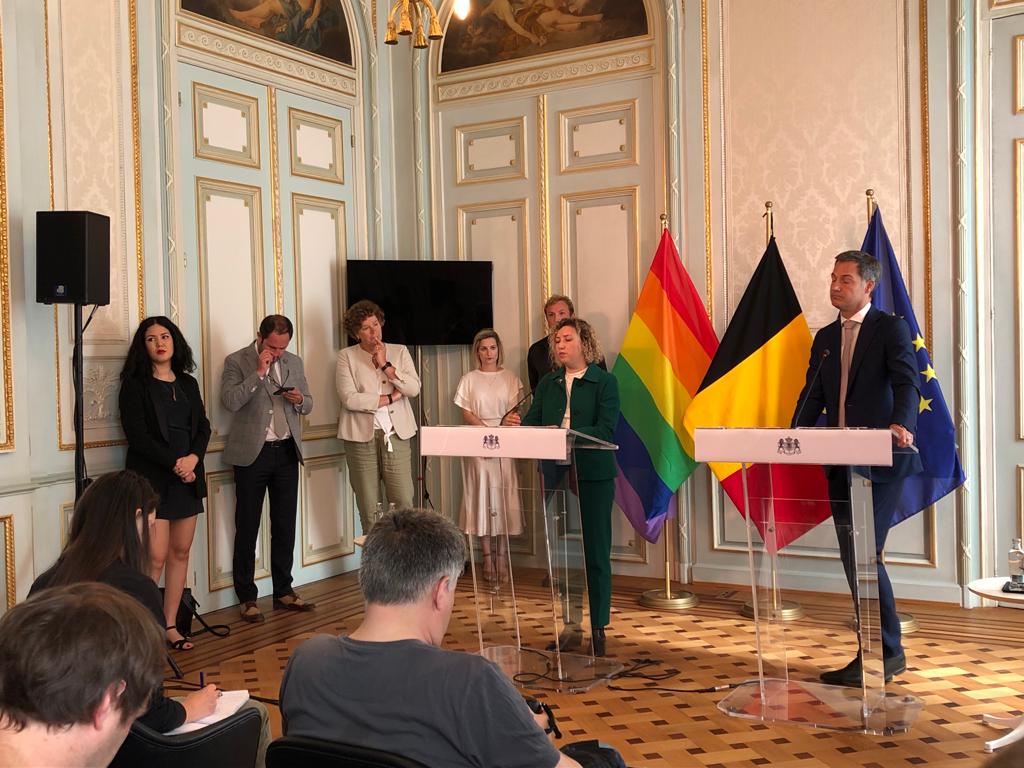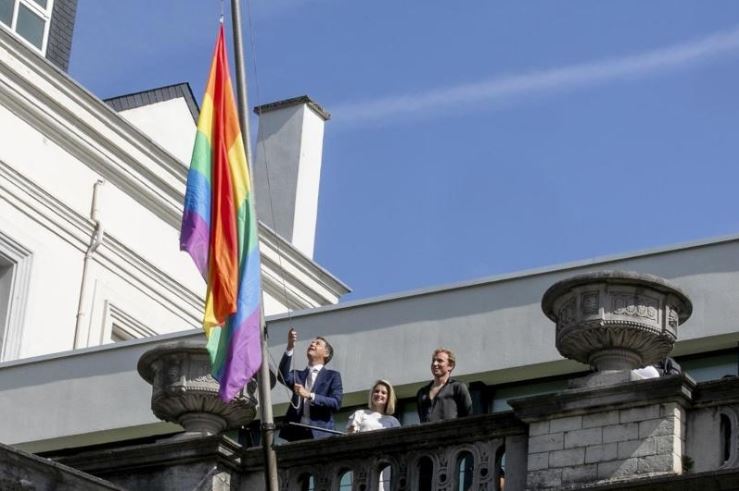The Federal Government launched its action plan to make Belgium more LGBTQ friendly on Tuesday 17 May, the International Day Against Homophobia, Biphobia and Transphobia (IDAHOBIT).
The plan, which consists of 133 concrete actions to be taken by ten Federal Ministers and State Secretaries, aims to increase safety and maximise inclusiveness. This will be done through awareness campaigns, an inclusive government, better access to welfare and healthcare, and combating discrimination.
"Belgium has always been a pioneer for LGBTQ rights. Almost 20 years ago, we introduced same-sex marriage and we lead the way in other areas as well," said Prime Minister Alexander De Croo.
"This openness is deeply embedded in our society. But there is still a lot of work to be done," he said. "That is what we, together with the entire Federal Government, are eager to support with this action plan. Love is love."
De Croo stressed that while he realised there is a difference between the progressive legislation and homophobic violence happening on the streets, the long-term strategy is to change the thinking patterns that lead to discrimination and violence. "It is unacceptable that today, in 2022, some people still feel unsafe."
Therefore, the Federal Government launched its third national action plan. "This does not just concern a particular niche in our policy, but it is a topic that is broadly incorporated, as ten State Secretaries and Ministers are each taking action in their own departments."
While Belgium is already doing quite well in terms of equal rights for the LGBTQ community and ranked in the top three on the Rainbow Index this year, the country still has a greater role to play by leading the way for others, according to De Croo.
"There are only 33 countries where there is effective protection against discrimination for the LGBTQ community, and still 67 countries where being part of that community is punishable by law, and sometimes even punishable by death," he said.
"Getting the death penalty for being who you are and loving who you love, I cannot get my head around that," De Croo said. Afterwards, he raised the rainbow flag on the facade of his offices on Rue de la Loi 16.
More than 100 actions to fight discrimination

Ministers for Justice Vincent Van Quickenborne, Civil Service Petra De Sutter, Equal Opportunities Sarah Schlitz, and Prime Minister Alexander De Croo. Credit: The Brussels Times/Maïthé Chini
The plan – which requires action from the Ministers of Justice, Interior Affairs, Foreign Affairs, Development Cooperation, Civil Service, Asylum and Migration, Equal Opportunities, Mobility, Health, and Work – will be coordinated by State Secretary for Equal Opportunities, Gender Equality and Diversity, Sarah Schlitz.
"This federal action plan includes more than 100 actions to combat the discrimination that lesbian, gay, bisexual, transgender, queer and intersex people still face, and to guarantee more rights for them," she said.
As part of the plan, Belgium will become the third EU country and fifth in the world to formally ban 'conversion therapy,' a non-scientific, ineffective and often harmful practice that attempts to change someone's sexual orientation to heterosexual.
"We also want to ensure safe healthcare for people in the LGBTQ community, as some people in need of help are sometimes still afraid to give details about their sexuality or gender identity," Schlitz said, adding that a pilot project would be started in Brussels.
Related News
- Wallonia launches LGBTQ plan for equal rights
- Brussels should open LGBTQ museum, say Greens
- Belgium third place on 'Rainbow Map' for LGBTQ rights
Specifically, a framework will be worked out to better regulate (and possibly ban) surgeries on intersex minors who are born with a discrepancy between their external and internal genitals, meaning their bodies usually "do not fit typical binary notions" of male or female – unless there is a serious medical necessity.
Currently, intersex infants and children often receive surgery or hormone treatment to give them more "socially acceptable sex characteristics." However, the practice is increasingly being considered controversial, as consent can usually not be given and there is no firm evidence of favourable outcomes.
Belgium will also be able to be tougher on crimes against members of the LGBTQ community: gender identity and gender expression will be added to gender, sexual orientation and gender reassignment as a 'discriminatory motive' – meaning it will be seen as an aggravating factor, leading to stricter punishments.
"It is no longer enough to just be 'tolerant'. In the face of hatred, we must all work openly so that everyone can live the life they want," Schlitz stressed.
Read the full list of actions proposed by the Federal Government in French and Dutch.

